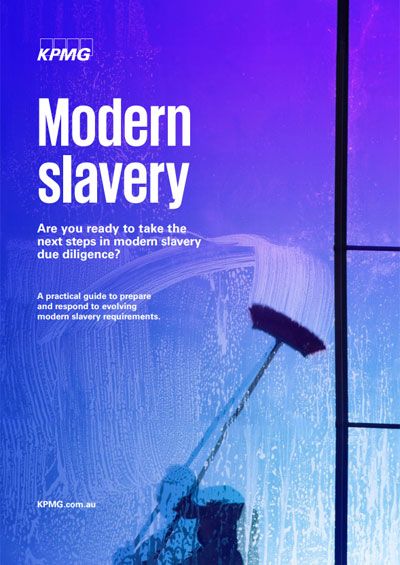The Modern Slavery Act 2018 (Cth) set a new standard for modern slavery disclosures in Australia. The Act required entities with a consolidated annual revenue of $100 million or more to disclose their efforts in identifying and addressing modern slavery risks within their operations and supply chain. The objective of the Act was to provide a framework to assist with proactively and effectively addressing modern slavery.
The 2023 independent review of the Modern Slavery Act, commissioned by the Australian Government (Review), found that the Act had not resulted in meaningful change for people affected by modern slavery. The review made 30 recommendations to strengthen modern slavery obligations for reporting entities, including the introduction of a positive requirement to conduct due diligence and the introduction of a federal Anti-Slavery Commissioner. The Government has highlighted that many of the Review’s recommendations are in line with key election commitments and introduced a Bill in November 2023 to establish an Anti-Slavery Commissioner.
Download our report to understand your obligations and next steps.
Preparing for mandatory modern slavery due diligence
Learn how to prepare and respond to strengthened modern slavery due diligence reporting requirements. Read our report for:
- an overview of changes to mandatory reporting requirements
- insight into reporting entities in high-risk sectors, including financial services, resources & energy, and property and construction, health services, retail and food, beverage and agriculture.
- a blueprint for mandatory modern slavery due diligence preparation
- a checklist of key questions to help you identify and assess your modern slavery risks.
Global modern slavery statistics
People
Products
$468 billion of imports by G20 countries are at risk of modern slavery.1
The top five at-risk products are:1
Recommendations for combatting modern slavery
The Review, concluded that although the Act has increased awareness of and engagement with modern slavery risks, there is room for improvement.
Proposed recommendations for business include:
-
Mandatory modern slavery due diligence
To address identified risks and report on activities undertaken. -
A lower mandatory reporting threshold
To include entities with a consolidated revenue of $50 million (down from $100 million). -
New mandatory reporting criteria
Including complaint mechanisms and stakeholder consultation. -
Federal Anti-Slavery Commissioner appointment
To support work undertaken across Government, business and civil society to address modern slavery -
New penalties for non-compliance
For failure to report or meet requirements. -
Strengthen guidance for reporting entities
To clarify obligations and improve modern slavery statement quality. -
Administrative power to declare high-risk modern slavery categories
And the extent to which entities must consider these.
Next steps: Preparing for mandatory due diligence
Entities will be at different stages of maturity in identifying and managing their modern slavery risks. At the same time, expectations of modern slavery management are rapidly evolving. As a result, regardless of your stage of maturity, you should continue to reassess your ambition and practices and strive to build your program over time.
Four steps to preparing for mandatory due diligence
- Assess your current maturity
- Regularly identify and assess your modern slavery risks
- Develop and implement your roadmap of activities to manage these risks
- Assess your effectiveness, report and continuously improve
Our report outlines these steps in detail, and provides illustrative case studies drawn from our extensive experience supporting clients at different stages of maturity to manage their modern slavery risks.
A checklist for addressing modern slavery
To further support your preparation, we have developed a detailed list of key questions to consider- for entities at each stage of maturity - when considering your evolving approach to due diligence.
How KPMG's business and human rights specialists can help
KPMG’s Human Rights & Social Impact team is dedicated to helping your entity understand and address human rights risks and impacts.
Our team specialises in modern slavery, working with Australian and global businesses across diverse sectors to assess, identify and manage their modern slavery risk.
We have 100 KPMG in-country human rights specialists across 38 countries, offering global knowledge of peer and industry practices to provide an in-depth understanding of local contexts and their interaction with the United Nations Guiding Principles on Business and Human rights.
We also offer entities the ability to independently self-assess the maturity of their approach to managing modern slavery risks through our Modern Slavery Benchmark tool.

Download the full report
Learn how to prepare and respond to strengthened modern slavery due diligence reporting requirements.
Download report (PDF 1.9MB)Contact KPMG’s Human Rights and Modern Slavery specialists

Regulation is driving change: leading practice three years ago is now the baseline. Effective modern slavery risk management, embedded across business, is a fundamental component of broader ESG strategy.

Dr Meg Brodie
Partner-in-Charge, KPMG Banarra – Human Rights & Social Impact
KPMG Australia





